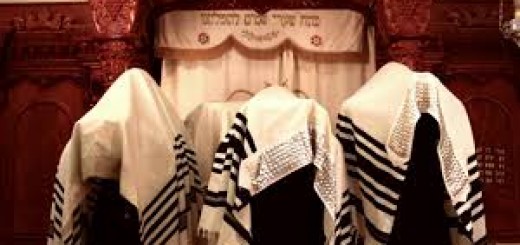The tzadik, Reb Hirsh of Riminov, was called “Reb Hirsh M’shares.” The reason for this title was that prior to his becoming rebbe, he was the mishares (caretaker) in the home of his rebbe, R’ Mendel of Rimanov.
Once, Reb Hirsh was visiting one of the tzadikim of the generation. The tzadik asked R’ Hirsh to explain the meaning of Rashi’s statement on one of the verses pertaining to Birchas Kohanim (the priestly blessing): “כה תברכו את בני ישראל אמור להם-כמו זכור ושמור” “’So shall you Bless the children of Israel. Say to them,’ – similar to zachor and shamor.”
Reb Hirsh replied with a story:
“When I was a mishares by R’ Mendel, it happened that one week when Thursday arrived, there was not a cent in the house to purchase what was needed for Shabbos. The Rebbetzin asked me to approach her husband and ask what to do.
“When I went into the room of the tzadik, I saw that he was in deep service of his Creator. I could not bring myself to ask him what to do, so I left the room.
“On Thursday night, again the Rebbetzin asked me to approach her husband. As I entered his room, I saw that he was once again involved in service of Hashem, and I could not bring myself to disturb him.
“When Friday morning arrived and there was no fish, meat or anything for that matter in the house, I entered the Rebbe’s room for the third time. Without me having to ask, the Rebbe said to me, ‘Go, take the pot that the fish is cooked in, fill it with water, and place it on the fire. Do the same with the pot for the meat and for all the other Shabbos foods.’
“I was taken aback, and I asked the Rebbe, ‘But what should I cook in these pots if there is no fish or meat?’
“The Rebbe replied, ‘It says in the Torah, “והיה ביום הששי והכינו את אשר יביאו” “And it shall be on the sixth day that when they prepare what they will bring [it will be double of what they gather every day].” Our responsibility is only to prepare what we have. The rest, Shabbos will do.
“I did all that the tzadik requested of me. I took the pots, filled them with water and placed them on the fire. Not long afterwards, a villager arrived who needed a place to stay for Shabbos. Along with him he had brought all the Shabbos needs – fresh fish, meat, etc.!”
Reb Hirsh concluded: “So too is with the Birchas Kohanim. Is it really possible that the Kohen can draw down such lofty blessing? Does not the verse say, “ואני אברכם” “And I (Hashem) shall bless them?” If so, what then is the need for the Kohen (priest)?!
Rather, Hashem asks that the Kohen do all the preparations that he is able to. He should wash his hands, take off his shoes, lift up his hands and say the blessing. Then, Hashem Himself will come and give the actual blessing.
It is for this reason that Rashi says that “אמור להם” is similar to “זכור ושמור” –since Birchas Kohanim is exactly like Shabbos!”
(ר’ מענדל מרימנוב- אמרות חכמה נשא)






















